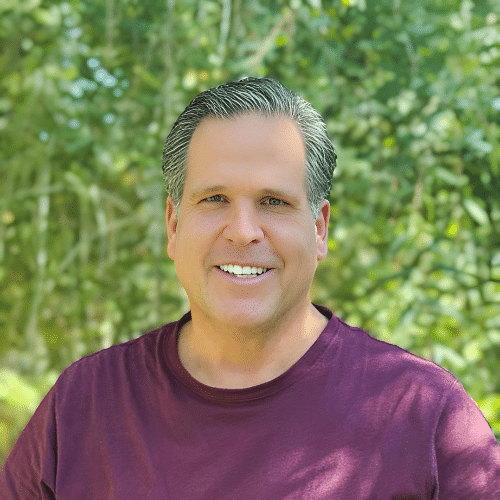Frequently Asked Questions
What is intervention process?
The intervention process involves a structured approach where family and friends come together to confront a loved one about their addiction, aiming to encourage them to seek professional help and support.
Who needs intervention?
Intervention is needed for individuals struggling with addiction or mental health issues who are unable to recognize the impact of their behavior on themselves and their loved ones. Families seeking to support these individuals often require professional guidance to facilitate the intervention process.
What is post-intervention?
Post-intervention refers to the support and follow-up care provided to individuals and families after an intervention has taken place. This phase is crucial for ensuring ongoing recovery and addressing any emotional or psychological needs that arise.
What is an interventionist?
An interventionist is a trained professional who facilitates interventions for individuals struggling with addiction or mental health issues, guiding families through the process to encourage their loved ones to seek help and treatment.
Are interventions confidential?
Interventions are confidential processes. The details surrounding the intervention, including participants and discussions, are kept private to ensure a safe and supportive environment for everyone involved, especially for the individual struggling with addiction.
What are intervention steps?
The intervention steps involve planning, gathering a support team, organizing the intervention, presenting the concerns to the individual, and providing them with treatment options. These steps aim to facilitate a constructive dialogue and encourage the individual to seek help.
Who leads intervention?
The leader of an intervention is typically a trained professional, such as an interventionist, who guides the process and helps facilitate communication among family members and the individual struggling with addiction.
Can intervention be forced?
Intervention cannot be forced in a legal sense, as individuals have the right to refuse help. However, a well-planned intervention can encourage a person to seek treatment by presenting the consequences of their addiction in a supportive environment.
Is intervention always successful?
Intervention is not always successful. While many individuals do respond positively and seek help, outcomes can vary based on numerous factors, including the person's readiness to change and the support provided by their family and professionals.
What is intervention goal?
The goal of an intervention is to encourage individuals struggling with addiction or mental health issues to seek professional help. It aims to provide support and create a safe environment for open communication among family members and the affected individual.
How does intervention work?
Intervention works by bringing together family and friends to confront a loved one struggling with addiction. This structured approach, often guided by a professional, aims to encourage the individual to seek help and support for their recovery.
When is intervention necessary?
Intervention is necessary when a loved one exhibits signs of addiction or mental health issues that jeopardize their well-being and relationships. Seeking professional help can guide families in addressing these challenges effectively.
How to plan intervention?
Planning an intervention involves gathering a supportive group of family and friends, choosing a suitable time and place, and working with a professional interventionist to outline the approach and desired outcomes for the individual struggling with addiction.
What causes addiction?
The causes of addiction are complex and multifaceted, often involving a combination of genetic, environmental, and psychological factors that influence an individual's vulnerability to substance use and behavioral disorders.
What are the signs someone needs intervention?
The signs that someone needs intervention include drastic changes in behavior, withdrawal from family and friends, neglecting responsibilities, and physical or mental health deterioration. These indicators often signal a serious addiction or mental health issue requiring professional help.
How to choose the right interventionist?
Choosing the right interventionist is crucial for a successful intervention. Look for a qualified professional with experience in addiction and mental health, positive testimonials, and a compassionate approach to ensure your loved one receives the best support.
What should be included in an intervention plan?
An effective intervention plan should include a clear objective, a list of participants, specific strategies for communication, details on the chosen treatment options, and a timeline for follow-up support.
What happens during an intervention session?
During an intervention session, family and friends gather to confront the individual struggling with addiction, expressing their concerns and support while encouraging them to seek professional help. This structured approach aims to motivate change and facilitate treatment.
How can families prepare for an intervention?
Families can prepare for an intervention by gathering supportive members, creating a structured plan, and consulting with a professional interventionist to ensure the process is effective and compassionate.
What are common misconceptions about interventions?
Common misconceptions about interventions include the belief that they are confrontational or forced, when in reality, they are compassionate, structured gatherings aimed at encouraging individuals to seek help for addiction and mental health issues.
How to evaluate intervention success rates?
Evaluating intervention success rates involves analyzing the long-term recovery outcomes of individuals post-intervention, including their sobriety duration, engagement in treatment programs, and overall improvement in mental health and quality of life.
What role does the interventionist play?
The role of the interventionist is to facilitate the intervention process, guiding families in expressing concern and support for their loved one struggling with addiction. They ensure the intervention is structured, compassionate, and effective in promoting treatment engagement.
What types of interventions exist?
The types of interventions that exist include family interventions, where loved ones come together to support the individual, and professional interventions led by trained specialists. Each approach aims to encourage the person to seek help for their addiction or mental health issues.
How to address resistance during intervention?
Addressing resistance during an intervention involves remaining calm, empathetic, and focused on the loved one's well-being. Use supportive language, validate their feelings, and emphasize the importance of professional help to encourage openness and acceptance.
What follow-up is needed after intervention?
Follow-up after an intervention is essential for ensuring ongoing support and recovery. This includes regular check-ins, continued therapy or counseling, and engaging in support groups to help the individual maintain progress and address any challenges.
How can interventions help with addiction recovery?
Interventions can significantly aid addiction recovery by providing a structured approach that encourages individuals to acknowledge their substance use issues. This supportive environment often motivates them to seek professional help and embrace necessary treatment.
What are the risks of not intervening?
The risks of not intervening include worsening addiction, deteriorating mental health, and potential harm to the individual and their loved ones. Without timely intervention, the situation can escalate, leading to severe consequences, including overdose or legal issues.
How to communicate effectively during intervention?
Effective communication during an intervention involves expressing concern with empathy, using "I" statements to share feelings, and actively listening to the individual. Focus on creating a supportive atmosphere to encourage openness and understanding.
What resources are available for intervention support?
Resources available for intervention support include professional intervention services, counseling for families, educational materials on addiction, and helplines for immediate assistance. These tools help guide families through the intervention process effectively.
How to handle emotional responses during intervention?
Handling emotional responses during an intervention involves remaining calm, validating feelings, and encouraging open communication. It's essential to create a supportive environment, allowing individuals to express their emotions while guiding the conversation toward healing and understanding.








